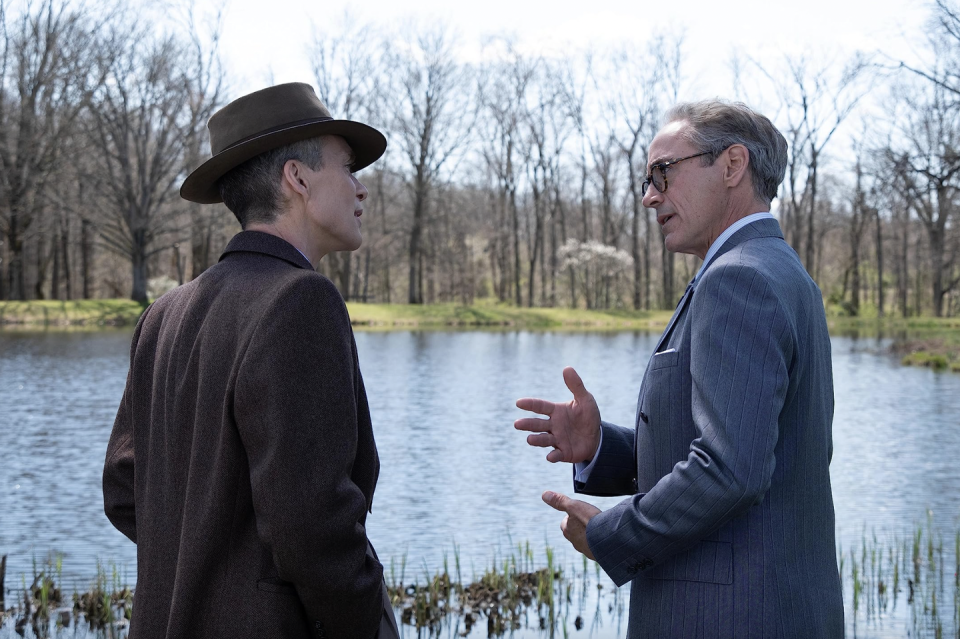How 'Oppenheimer' Reconsidered Lewis Strauss's Role In History
- Oops!Something went wrong.Please try again later.
- Oops!Something went wrong.Please try again later.
- Oops!Something went wrong.Please try again later.
Robert Downey Jr. is a shoo-in to take home a trophy at the Oscars this year. After winning awards at the Golden Globes, the BAFTAs, the Critics Choice Awards, and the Screen Actors Guild Awards, Downey Jr. will very likely earn the Academy's Best Supporting Actor honor this Sunday. The Oppenheimer star does have some stiff competition from Mark Ruffalo (Poor Things) and Ryan Gosling (Barbie), but Oppenheimer sweep is seemingly upon us.
Starring as Lewis Strauss, the former Marvel actor plays opposite Cillian Murphy's J. Robert Oppenheimer, as one of the original members of the U.S. Atomic Energy Commission (AEC) in 1946. The character's main arc begins late in Oppenheimer, after the creation of the nuclear bomb and the end of WWII. Oppenheimer grows remorseful over his part in the deaths of hundreds of thousands of lives in Hiroshima and Nagasaki—and he urges President Henry S. Truman (Gary Oldman) to cease any further nuclear testing. Meanwhile, the Truman-appointed Strauss (Downey Jr.) begins to advocate for the development of the hydrogen bomb—an even more powerful thermonuclear weapon.
Tensions rise as the Cold War arms race ramps up. Oppenheimer meets with Albert Einstein, who warns him about the potential for nuclear holocaust. This meeting "wasn't historical," according to Oppenheimer's grandson, Charles Oppenheimer. Still, he told Time, "Einstein's conversation with Oppenheimer at the end was really effective." Strauss believes that Oppenheimer may badmouthed have badmouthed him during this conversation, however. This partially leads him to become a major player in Oppenheimer's controversial security hearings in 1954.

Taking up most of the third act of Oppenheimer, Strauss levies attack after attack at the hearings—aiming directly at Oppenheimer. He was reportedly offended by Oppenheimer's relationship with former communist Jean Tatlock (Florence Pugh), and even harbored resentment that Oppenheimer never joined him as a prominent figure of major Jewish organizations in Washington (though this aspect of Strauss's character was largely left out of the latest Nolan film). Strauss also has then-FBI director J. Edgar Hoover put Oppenheimer under surveillance, which included illegal wiretappings.
"I had a previous fair understanding of Strauss because I was fascinated with the mechanics of warfare, particularly in the Pacific theater in World War II," Downey Jr. told Vulture. "I challenged a little bit the Mozart-Salieri of it all. I said, I’m not sure in some ways that Strauss isn’t a bit the hero here, which kind of raised an eyebrow on Chris [Nolan]. I half-jokingly challenged him on whether Admiral Strauss hadn’t done everything that any patriotic American would’ve done. And he said, Well, this will be a wonderful ongoing dialogue. So, will you do the film? And he’s Chris Nolan, so he’s not asking your fricking agent."
In the end, Strauss ensured that Oppenheimer's security clearances are revoked—simply to embarrass him. The hearing ended just a day before the clearances were set to expire regardless, and his status in the public eye as a "hero" or a "villain" in the hearings varied. A little full of himself, Strauss eventually overstated that he was actually the one who convinced Truman to pursue the H-bomb—which frustrated Truman. The former President leaked a letter to the press outlining his anger at Strauss, which led to the failure of the AEC chairman's Senate confirmation hearing to become the Secretary of Commerce. The defeat effectively ended Strauss's political career.
You Might Also Like

